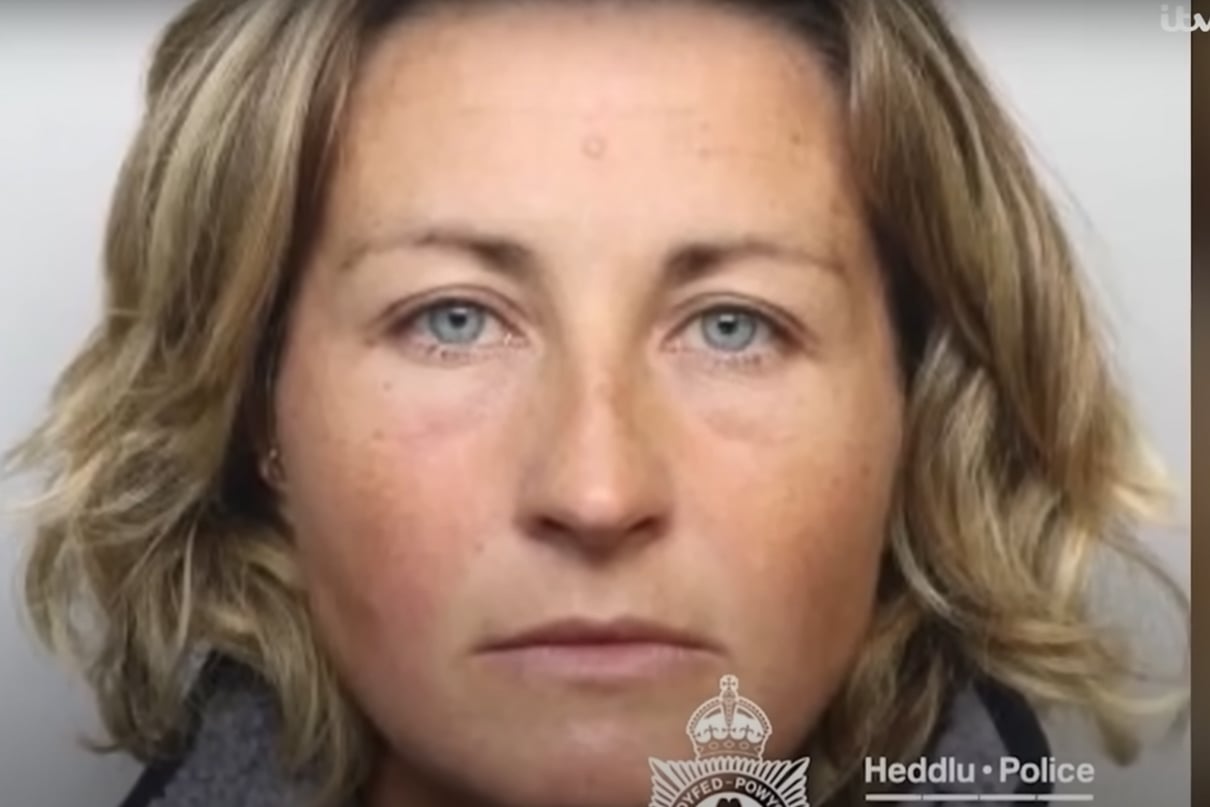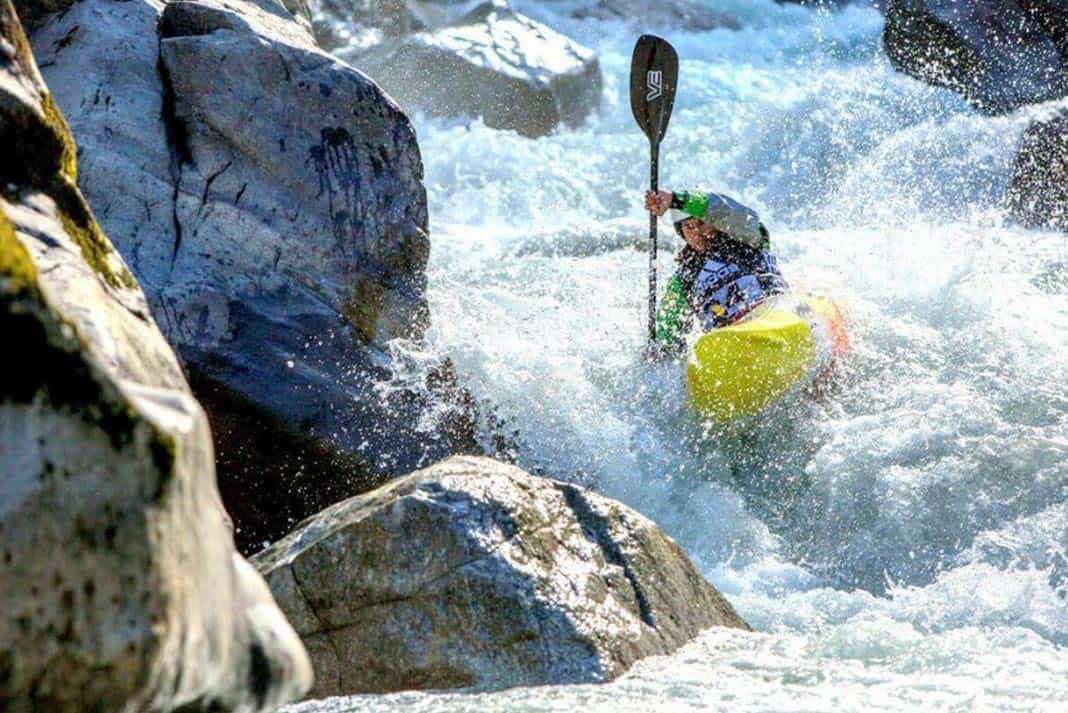Nerys Bethan Lloyd was sentenced to ten years and six months in prison for manslaughter after leading four people to their deaths in a paddleboarding incident involving a weir on the River Cleddau in Pembrokeshire, Wales.
Lloyd pleaded guilty on four counts of gross negligence manslaughter and failure to discharge her duty.
Paddleboard tragedy on the River Cleddau
The tragedy occurred on October 30, 2021 when Lloyd, as both a paddleboard guide and owner of Salty Dog paddleboard outfitter, led a group towards the weir without any instruction of how to avoid the churning waters and recirculating currents below, nor any warning of potential hazards.
Conditions on the River Cleddau the day of the incident included higher flow rates and near-flood conditions after heavy rains. Over the three days preceding the incident over 50 millimeters (nearly two inches) of rain had fallen and weather warnings had been in place, including a high risk flooding alert issued by National Resources Wales two days before the incident — a warning that remained in place the day of the incident according to the sentencing remarks read on Tuesday April 25, 2025.
Andrea Powell, Morgan Rogers, and Nicola Wheatley, all beginner paddleboarders and customers, drowned as well as Paul O’Dwyer, Lloyd’s co-guide. Paul died jumping back into the water in an attempt to save others.
Surviving the incident were Gemma Cox, Melody Johns, Ceri O’Dwyer and Jemma Dugdale.
Paddleboarders in tragic accident expected a beginner-friendly trip
The paddleboard trip was meant to last four hours and be a scenic, beginner-friendly paddle down the River Cleddau. In a group chat before the trip, Lloyd and Paul assuaged the fears of concerned participants, assuring them how easy and manageable the trip would be.

Four of the paddlers were not wearing wetsuits and one decided not to wear a life jacket. There was no safety briefing before the trip began; no emergency or next of kin details were collected. Additionally, there was no discussion of the existence or hazards of the weir before the paddle, nor was the tidal nature of the river mentioned. Both Lloyd and Paul knew about the weir and its potential hazard, but had not checked on conditions or water levels in several days.
The incident occurred one hour after low tide, making for a 1.3 meter (over four foot) drop over the weir. Moreover, the weir was not visible to the beginner paddlers from the angle of approach taken; only Lloyd and Paul O’Dwyer knew it laid immediately ahead.
Paddleboard guide made little attempt to warn beginners of dangerous weir
The CCTV footage of the incident was ruled too distressing to be shown in court, but court readings state that upon approach to the weir Lloyd made no visible attempt to investigate the portage steps around the dangerous feature, which were partially obscured by high water levels. Survivor Ceri O’Dwyer’s statement records that Lloyd did shout for the others to hang back while Lloyd went down a narrow fish ramp in the middle of the weir.
There was no instruction given to the new paddlers to head for the fish ramp themselves, and the fish ramp was invisible to them. Only Ceri had heard Lloyd’s instructions and tried to repeat them. According to the sentencing statements, “without knowing about the fish ramp and how to deal with it your instructions were vague and meaningless and could not have been acted upon because of the flow and strength of the current.”
Lloyd did try to paddle back towards the others as they came off the weir but could not make progress against the current.
The group went over the weir and was sucked into its hydraulic—a recirculating current that will hold paddlers, boats, or debris in a washing-machine-like cycle underwater—created by the low head dam character. Dams and weirs often have currents like this beneath them and are nicknamed “drowning machines”.
Also notable was the use of ankle leashes attached to the paddleboards instead of quick-release waist leashes. Ankle leashes are more difficult to reach to free yourself of the board, which is also being recirculated by the hydraulic.
Paddleboard guide responsible for the death of four told police she “saw stars in the sky” that day
Neither Lloyd nor Paul had taken courses to qualify them to instruct standup paddleboard activities on rivers with current; courses they had taken however covered risk management, health and safety duties, and the need for attention to the water.
In a conversation with her wife shortly after the incident, Lloyd admitted that the incident was her fault and that she should not have gone on the water that day. Meanwhile, Lloyd’s initial account to police suggested she attempted to lead the beginner paddleboarders on her tour down the fish slide in the middle, and blamed Paul for the incident.
Lloyd also told police that health and safety talks and checks had been conducted before the trip, participants were at an intermediate level, and Lloyd and Paul had checked on river conditions that morning and were happy with conditions on the river and the capabilities of the paddlers.
Lloyd was arrested a week later upon not providing answers to police questions; instead only providing a prepared statement in which Lloyd stated she “saw the stars in the sky and that there was no wind in the early morning of 30 October.”
Lloyd later went on to claim that she was suddenly sucked into the weir system herself while attempting to investigate the portage steps as an option; the account was rejected as inconsistent with CCTV evidence and survivor accounts.
Paddleboard guide takes full blame for the death of four on tour
In an August 2022 statement, Lloyd went on to place blame on Paul, who Lloyd claimed was meant to undertake all the risk assessments and safety briefings. In the same interview, Lloyd also denied instructing Ceri to follow her down the middle of the weir.
Additionally, it was found that Paul researched alternate routes to avoid the weir. Paul cited concerns, including the increased drop over the weir at low tide—concerns which were rejected by Lloyd. As Lloyd was the owner of the company, Paul deferred to her.
Lloyd pleaded guilty at the first available opportunity.
“Being sorry for what happened is different from remorse,” Justice Mary Stacey said upon the sentencing, citing Lloyd’s disproportionate blame placed upon Paul, her employee who raised concerns about the route initially then lost his life trying to rescue others.
At the trial’s conclusion Lloyd took full blame for the incident according to a statement read by her defense lawyer.





Unfortunately, sometimes the risk factors present on a tour get overridden by the risk of losing revenue by canceling or postponing the tour.
Wow. Just w0w.
This preventable disaster was horrifying to read about. I simply cannot understand the willingness to disregard conditions and the danger on that river. Many lessons here to learn. Such a needless tragedy. This underscores that safety comes first and that all people involved – customers and guides can and should say NO when something doesn’t feel right or look right before setting off on water.
No words.